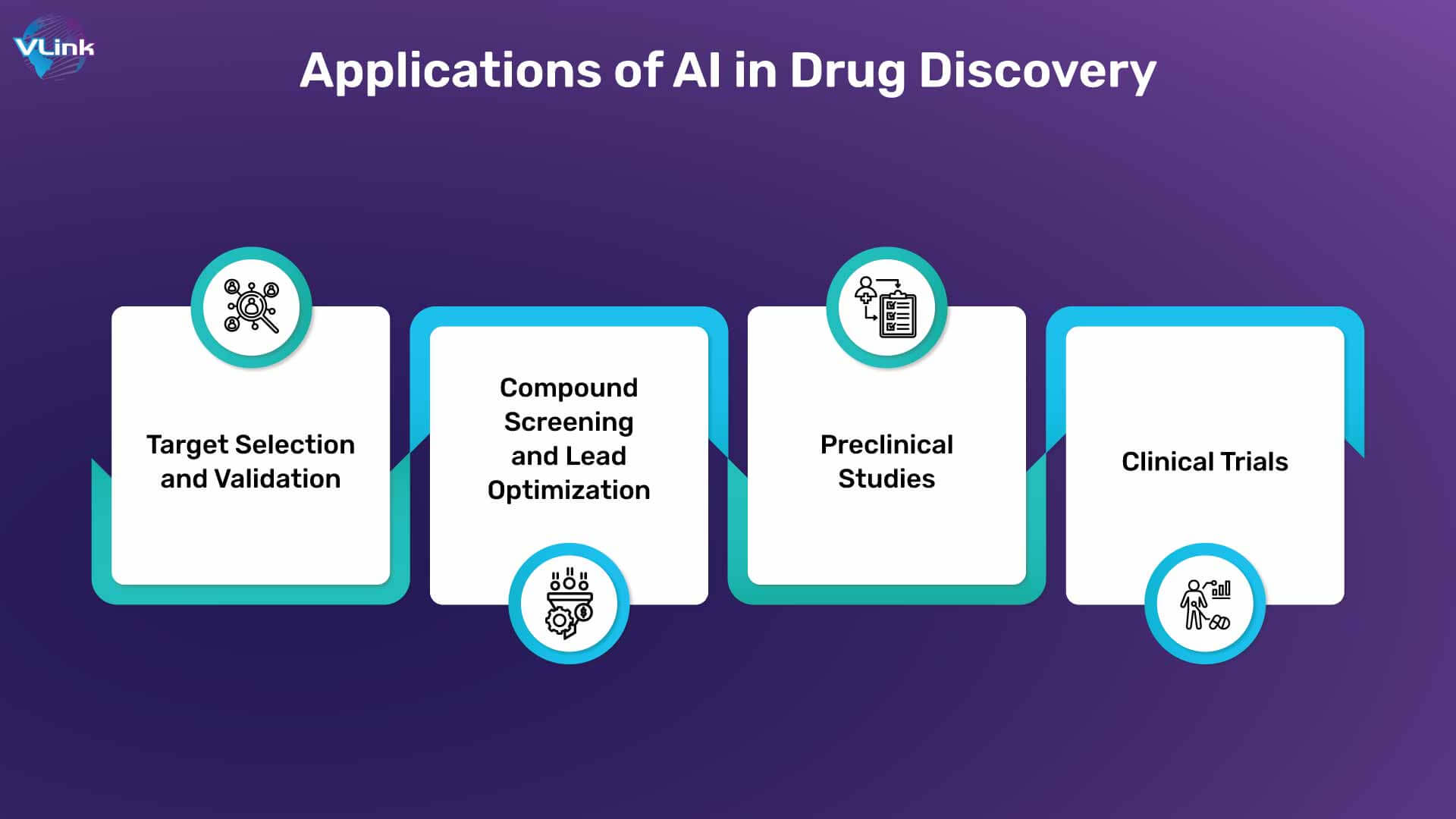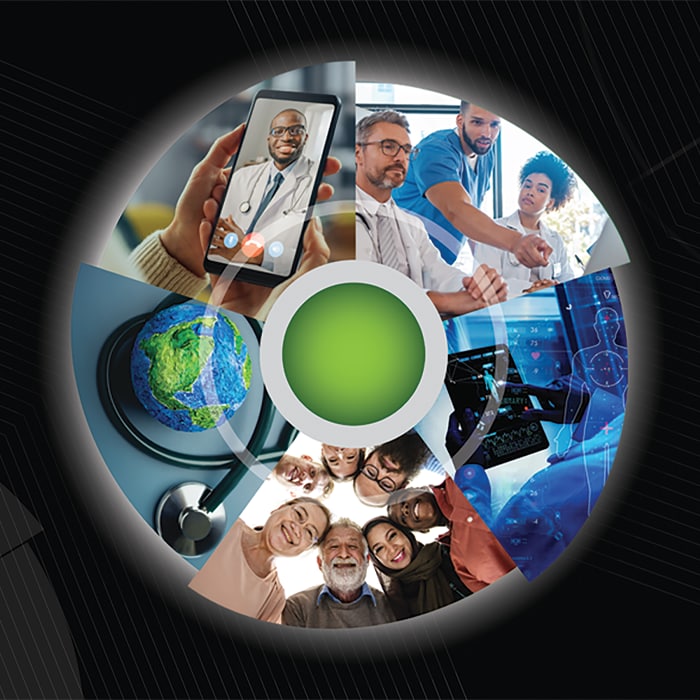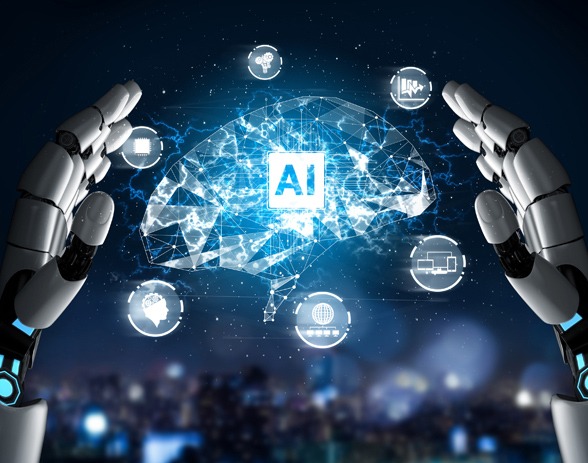Introduction to AI-driven Drug Discovery
The world of pharmaceuticals is on the brink of a revolution. Imagine a future where new drugs are developed at lightning speed, significantly improving patient outcomes and transforming healthcare as we know it. This vision is becoming reality thanks to AI-driven drug discovery. By harnessing the power of artificial intelligence, researchers can streamline processes, analyze vast amounts of data, and uncover potential treatments faster than ever before.
In this era where time is crucial, speeding up drug development could save countless lives. The intersection of technology and medicine promises to reshape how we approach disease treatment and prevention. Let’s dive into how AI is not just changing the game; it’s rewriting the rules entirely in drug discovery.

How AI is Transforming the Pharmaceutical Industry
AI is reshaping the pharmaceutical industry in unprecedented ways. By harnessing vast amounts of data, it enhances the drug discovery process like never before.
Machine learning algorithms analyze complex biological systems. They identify potential drug candidates faster than traditional methods could dream of achieving. This rapid analysis reduces time and costs significantly.
Moreover, AI predicts how drugs will interact with various biological targets. It streamlines clinical trials by identifying suitable patient populations, ultimately improving success rates.
Automation in research laboratories also plays a key role. Robots equipped with AI capabilities can perform high-throughput screening efficiently, allowing scientists to focus on more strategic tasks.
By providing insights derived from big data analytics, AI empowers researchers to make informed decisions quickly. The future holds exciting possibilities as these technologies continue to evolve and integrate into everyday practices within pharmaceuticals.
Benefits of AI in Drug Discovery
AI in drug discovery significantly enhances efficiency. Traditional methods are often slow and costly, but AI accelerates the process. It quickly analyzes vast datasets, identifying potential compounds faster than any human researcher could.
Moreover, AI algorithms can predict how different drugs will interact with biological systems. This predictive capability reduces the chances of late-stage failures in clinical trials, saving both time and resources.
The technology also fosters innovation by uncovering novel drug candidates that might go unnoticed through conventional approaches. Researchers can explore uncharted territories in pharmacology with these advanced tools.
Additionally, AI facilitates personalized medicine by analyzing genetic information to tailor treatments for individuals. This leads to more effective therapies with fewer side effects as well as improved patient outcomes.
With its ability to enhance collaboration among researchers globally, AI is reshaping partnerships across the pharmaceutical landscape, driving forward a new era of discovery and development.

Challenges and Limitations of AI-driven Drug Discovery
AI-driven Drug Discovery, while promising, faces notable challenges. One significant hurdle is data quality. AI systems rely on vast amounts of high-quality data to train algorithms effectively. Incomplete or biased datasets can lead to inaccurate predictions.
Moreover, the complexity of biological systems adds another layer of difficulty. Understanding how drugs interact at a molecular level requires nuanced insights that current AI models might not fully capture.
Regulatory hurdles also impede progress. The pharmaceutical industry is heavily regulated, and integrating AI into traditional drug development pathways raises questions about compliance and safety protocols.
Additionally, there’s the issue of interpretability. Many AI models operate as “black boxes,” making it tough for researchers to understand decision-making processes behind drug candidates.
Funding remains a concern. Developing robust AI frameworks demands significant investment in technology and talent—resources that some companies may struggle to allocate efficiently.
Case Studies: Successful Applications of AI in Drug Discovery
AI is making waves in drug discovery with several notable success stories. One standout example is Atomwise, which uses deep learning to identify potential drug candidates for diseases like Ebola and multiple sclerosis. By analyzing vast datasets of molecular structures, it can predict how different compounds will interact.
Another impressive case comes from BenevolentAI. This company successfully repurposed existing drugs for new treatments by leveraging AI algorithms. Their work on discovering a treatment for amyotrophic lateral sclerosis (ALS) highlights the ability of artificial intelligence to accelerate research timelines significantly.
Insilico Medicine has also gained attention for its innovative approach using generative adversarial networks (GANs). They designed novel molecules aimed at specific targets in just 21 days, vastly reducing the typical time spent in early-stage development.
These examples illustrate the transformative potential AI holds in speeding up drug discovery and enhancing therapeutic options across various medical fields.
Future Outlook and Potential Impact on Healthcare
The future of AI-driven drug discovery looks promising. As technology continues to evolve, we can expect faster and more accurate identification of potential drug candidates. This acceleration could lead to treatments reaching the market much sooner.
Moreover, personalized medicine is on the horizon. AI can analyze vast datasets to tailor drugs to individual patients based on genetic profiles or health histories. This level of customization enhances efficacy and minimizes adverse effects.
Collaboration between tech companies and pharmaceutical giants will likely become more common. Such partnerships could harness diverse expertise, pushing innovations further and driving down costs in drug development.
Data privacy remains a critical consideration as AI integrates deeper into healthcare systems. Striking a balance between innovation and patient confidentiality will be essential for maintaining trust in these advancements.
As we look ahead, the synergy between AI technologies and clinical research may redefine therapeutic landscapes entirely, broadening access to life-saving medications across diverse populations.

Ethical Considerations of AI in Drug Discovery
As AI technology advances, ethical considerations in drug discovery become increasingly critical. One major concern is data privacy. Researchers must ensure that patient information is handled responsibly and securely.
Bias in algorithms also poses a significant risk. If not carefully monitored, AI systems may inadvertently favor certain demographics over others, leading to unequal access to treatments.
Transparency is another pressing issue. Stakeholders need clarity on how AI models make decisions. This understanding fosters trust among medical professionals and patients alike.
Furthermore, the accountability of decisions made by AI remains ambiguous. Determining who bears responsibility for errors can complicate regulatory frameworks.
The potential for misuse raises alarms within the healthcare community. Safeguards should be established to prevent exploitation of advanced technologies in harmful ways or unethical practices related to drug development.
Conclusion
The landscape of drug development is undergoing a significant transformation. The integration of AI in the process offers unprecedented speed and efficiency, revolutionizing how new treatments are discovered and brought to market. By leveraging advanced algorithms, researchers can now identify potential drugs faster than ever before.
AI-driven drug discovery has proven its worth through various successful applications across different therapeutic areas. Companies that embrace this technology demonstrate not only improved outcomes but also reduced costs associated with traditional methods. As we witness these innovations unfold, it’s clear that they will play a critical role in combating diseases more effectively.
However, navigating the challenges tied to AI implementation remains essential. Issues such as data quality, ethical considerations, and regulatory hurdles need careful attention. Addressing these concerns will be key for maximizing the benefits while minimizing risks associated with AI technologies in healthcare.
Looking ahead, the future of drug discovery is bright thanks to advancements in artificial intelligence. These developments promise not just swifter processes but also enhanced precision in targeting specific health conditions. This synergy between innovation and medicine holds enormous potential for improving patient care on a global scale.
As stakeholders continue to explore this promising frontier, it’s crucial to maintain an open dialogue about the ethical implications involved in AI’s deployment within healthcare systems worldwide. Balancing technological progress with moral responsibility will ultimately shape the next chapter of drug discovery—a journey filled with great promise for patients everywhere.






